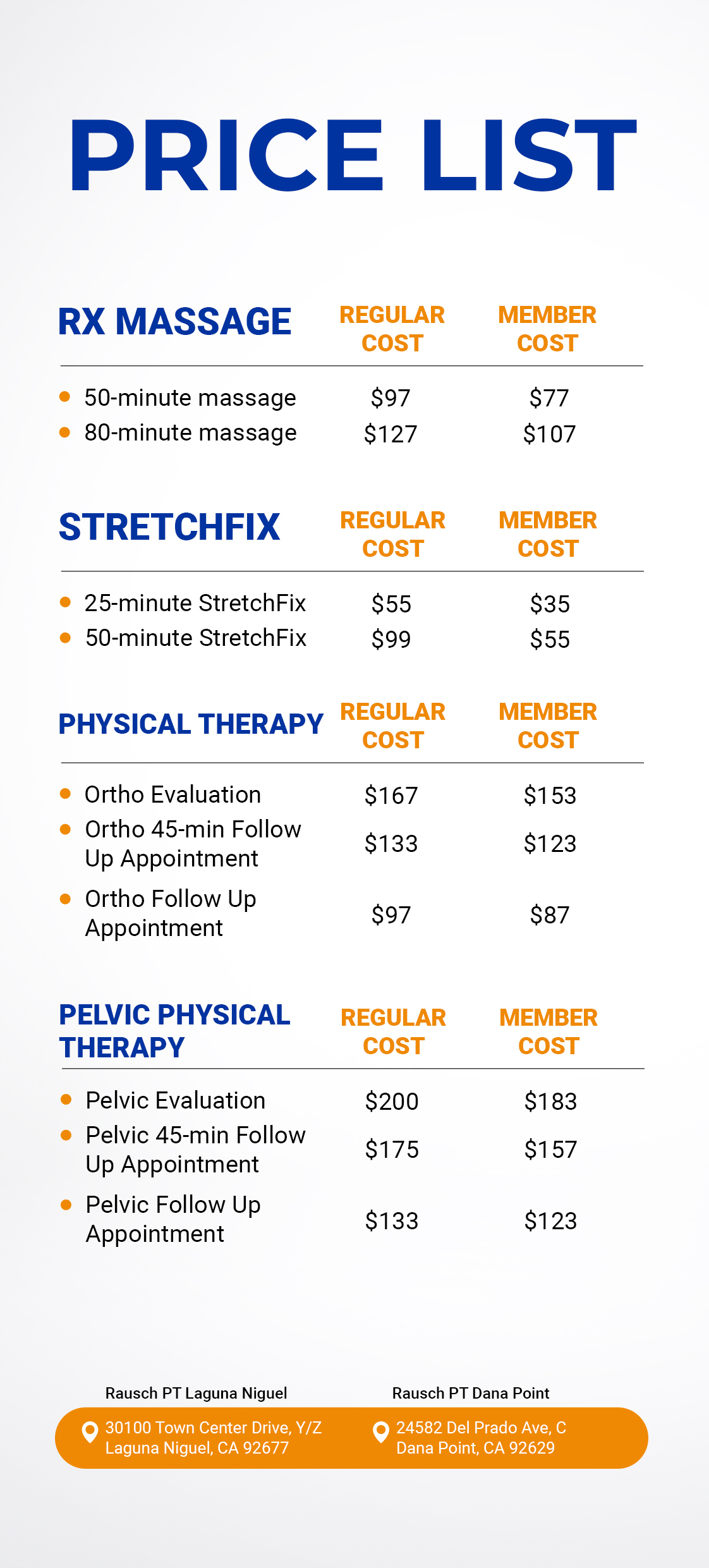1. Bring Mindfulness Into Your Day Stress and anxiety don’t just affect your mind—they impact your nervous system, sleep, recovery, and even how your body experiences pain. Mindfulness and meditation,
MASSAGE THERAPY & HEART HEALTH: MASSAGE MIGHT REDUCE RISKS & BENEFIT RECOVERY
February 27, 2020 5:53 pm / Category: Rx Massage
Heart disease is the leading cause of death in the U.S. for both men and women. Given these grim statistics, what can be done — and can massage therapy help heart health in any way?
February is American Heart Month, a month-long awareness campaign created in 1963 and today promoted by organizations including the National Heart, Lung & Blood Institute, the American College of Cardiology and the American Heart Association.
This article written for MASSAGE Magazine on behalf of the Massage Therapy Foundation provides an overview of heart disease in the US and research conducted on the benefits of massage for disease prevention and recovery of cardiovascular patients.
Heart Disease in the U.S.
According to a report by the Centers for Disease Control & Prevention (CDC), heart disease is the leading cause of death in the U.S. for both men and women — and someone has a heart attack every 40 seconds.
Drawing information from a study titled Heart Disease and Stroke Statistics — 2017 Update: A Report From the American Heart Association, the fact sheet cites that “Heart disease is the leading cause of death for people of most racial/ethnic groups in the [U.S], including African Americans, Hispanics, and whites. For Asian Americans or Pacific Islanders and American Indians or Alaska Natives, heart disease is second only to cancer.”
Risk factors of heart disease include, but are not limited to, high blood pressure, obesity, diabetes, and limited exercise. Sleep disturbances may also increase cardiovascular risk factors per the American Heart Association.
While the above statistics are for the U.S., the research reviewed for this article reveals that heart disease is prevalent worldwide.
And Now, the Good News
The good news is that a number of studies indicate that massage may be beneficial, both for some of the risk factors of heart disease as well as a treatment for those who have undergone some cardiac procedures.
When we look at massage therapy and the heart, there are a variety of studies to review, including ones involving cardiac patients and those related to how massage helps with stress relief.
While this review of the literature is fairly short, the hope is that it will stimulate interest in others to further investigate the risks, symptoms, treatments, and benefits of massage for heart disease.
Given the prevalence of the disease, there is a very good chance that individuals with heart disease have been on the majority of massage tables.
Massage & High Blood Pressure
In looking at the risk factors of heart disease, we have to ask several questions: What does the research report about massage and high blood pressure (HBP)?; as one of the leading causes of heart disease, if massage is proven to help lower blood pressure, would it be beneficial to promote that to the public?; and what constitutes a diagnosis of HBP?
According to the CDC, normal blood pressure is less than 120/80, prehypertension is 120-139/80-89, and HBP is 140/90 or higher.
In a 2013 issue of the International Journal of Preventive Medicine, a study on the durability effect on massage on HBP was published. This was a single-blind study with the intervention group receiving Swedish massage three times a week and each session lasting 10-15 minutes for a total of 10 sessions over a three-and-a-half-week period of time. The areas massaged were the face, neck, shoulders and upper chest. The client’s blood pressure was taken before and after each massage session.
The individuals in the control group reclined in bed and also had their blood pressures measured in the same manner as the massage group. All participants also had their blood pressures taken 72 hours after the study period ended.
Results showed a significant lowering of blood pressure for the massage therapy group and little or no change in the control group. While this is a six-year-old study and some of the references listed in it are over 20 years old, all indicate that massage may have a positive impact on reducing blood pressure.
Massage & Heart Rate Variability
Another study measured heart rate variability (HRV) of those receiving massage with or without aromatic oil or sham massage. In this study, the authors cited a number of references that “have shown that massage can reduce stress, improve immunological and inflammatory parameters and has a positive influence on blood pressure and HRV”
This study found that massage without the aromatic oil caused the most relevant effect in the long term of the autonomic nervous system.
Massage & Sleep
More recent studies have looked at the effect of massage therapy on sleep disturbances. In June of 2013, a case report on narcolepsy was published that indicated an overall improvement in the client’s ability to get to sleep and the quality of sleep.
As this was a study with only one subject, further studies would be beneficial. Some studies cited in the references are over 10 years old and indicate a positive impact on sleep disturbances for those who received massage.
Massage & PTSD
For individuals with PTSD and sleep issues, a series of case reports published in 2019 found that massage did not significantly improve the quality of sleep for the three individuals in the study. This differed from results in other studies8.
Anecdotally, many massage therapists will report that they often have clients who fall asleep during the massage, so it’s not hard to imagine that it may benefit those with sleep disturbances, but perhaps not all. Is this an area of study that might be of interest to you?
Massage & Treatment Recovery
For people with heart disease who have undergone one or more treatment interventions, massage may be beneficial in their recovery.
One of the newest studies is currently taking place thanks to a grant from the Massage Therapy Foundation (MTF). James Hunter Groninger, director of the Section of Palliative Care at MedStar Washington Hospital Center and Associate Professor of Medicine at Georgetown University, is conducting a pilot study using massage to improve self-efficacy for those patients who have a left-ventricular device implanted.
Previous research has studied the effect of massage for post-op cardiac patients, mostly evaluating its impact on anxiety, stress, and pain. In 2016, the journal Clinical Trials and Regulatory Science in Cardiology published a meta-analysis review of studies evaluating the effect of massage therapy on post-cardiac surgery patients related to anxiety and pain.
The researchers discovered the following results: “[Ten] randomized clinical trials were included in the systematic review, providing data on 888 individuals. Massage therapy was associated with decreased pain (−1.52 [95% CI,−2.2,−0.84; I2 91%], p < 0.0001) and with lower anxiety in the postoperative period when compared to the control group (−1.48 [95% CI, −1.93, −1.04; I2 0%], p < 0.0001)”. They reached the conclusion that massage may be beneficial to reduce pain and anxiety for this population.
Earlier studies show varied results, including a 2015 systematic review of research studies that were published between 2000 and 2015. The researchers concluded, based on their review of seven studies, that “[T]here is a need for higher methodological qualities of research studies to create a strong evidence base for massage therapy. Additional research studies that validate massage therapy as effective in improving postoperative outcomes and recovery in cardiac surgery ….”
Massage in the Hospital
Further, a randomized clinical study published in 2012 measured pain levels, relaxation, muscular tension and satisfaction in a total of 152 patients who had elective cardiac surgery, either coronary artery bypass (CABG) or valve surgery. The researchers also evaluated the feasibility of providing massage in the hospital setting for these post-operative patients.
The intervention group received a 20-minute massage on post-op days three or four, and five or six. Patients determined the areas of the body to be massaged. The control group received an equivalent rest period devoid of visitors or any interventions of health care providers.
The researchers concluded that “[T]he results from the present randomized study have shown that massage therapy can be safely and effectively delivered on a busy cardiothoracic surgical ward, with no increase in adverse events, significant reductions in pain, anxiety, and muscular tension, and enhancement of patients’ sense of relaxation.”
Massage & Stress Relief
One can imagine that being diagnosed with heart disease can be stressful. Undergoing a heart procedure to treat heart disease can add to that stress. There are numerous research studies that have evaluated the benefit of massage for stress reduction.
A search of “massage and stress research” returns studies done throughout the past 30-plus years, many of them measuring cortisol levels, physiological indicators of stress, or perceived stress with positive results.
I was fortunate enough to be able to complete one of those for my master’s thesis thanks to a grant from the Massage Therapy Foundation and the studies done before mine. So many more have been completed since that time and have strengthened the link between massage and stress reduction.
Reference: {https://www.massagemag.com/massage-therapy-heart-health-massage-might-reduce-risks-benefit-recovery-121340/}
Let’s talk! We are here to help. Give us a call for a complimentary consultation. We would love to meet you.
Did you know massage can massively speed up your healing, from training, injury or surgery recovery? Massage has an overarching positive effect on so many aspects of your health. We have excellent memberships that make regular expert massages possible. Call us! (949) 276-5401
Disclaimer — All the information that you find on our blogs and social media pages is for informational purposes only and is not intended to be used as your personal professional diagnosis, or treatment. Come and see us for your excellent, personalized care! https://rauschpt.net/





